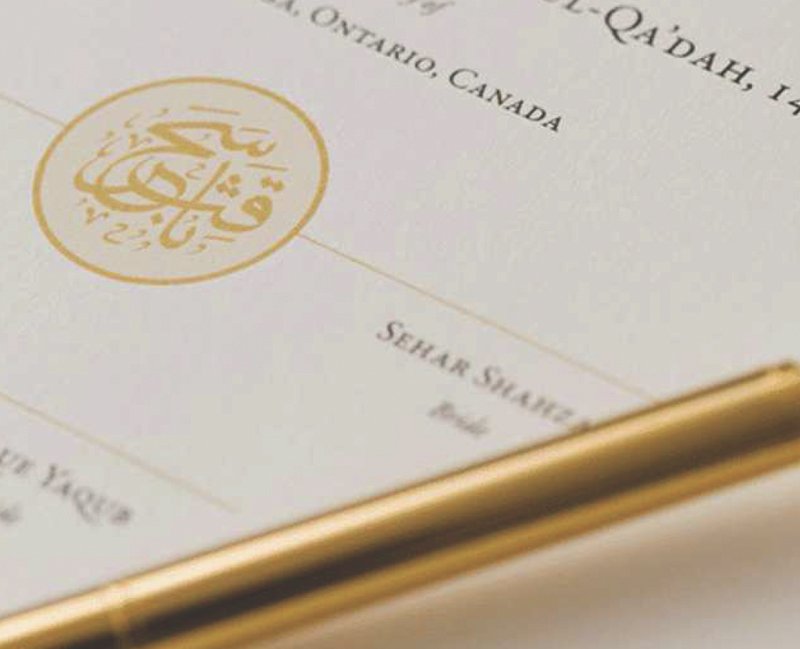
Haq Mehar
The purpose of Haq Mehar is to provide you financial protection in the event of a divorce. There are two kinds of mehr: prompt (mu’ajjal), which is to be given before consummation of the marriage or at the time of Nikkah and deferred (muwajjal), which is given at an agreed upon time or after divorce as per Islamic law. Even though the in-
laws might be tempted to put down a mere 10k for your haq mehar claiming that it is merely a tradition (a “rasam”), please know that it is your right to demand Haq Mehar from your husband. However, if you decide to forego it, let it be your choice and yours alone.
Special Terms
Like any regular contract, Nikahnama also allows you to add your terms and conditions. Within the bounds of Shariah Law, you can demand practically anything from your husband – whether it’s the right to work after marriage or even a certain monthly allowance, clause 17 in the Nikahnama allows you to put down any mutually
decided terms and conditions. Do not get carried away, ladies. With great power, comes great responsibility, haha!
Khula and Talaq-e-Tafweez
Now let’s get one thing straight, Khula is your Islamic right and the right to divorce is your legal right. Do NOT confuse the two. Even though marriage is sacred, some marriages are just not meant to continue. In some cases, the
Qazi officiating the marriage strikes out the right to divorce and in other cases, it comes from the families, but remember, it is YOUR legal right! In the case of a Khula, you can file for dissolution of marriage but have to forsake alimony, Haq Mehar and return any gifts given to you during the course of your marriage, and the court decides whether the marriage will be dissolved or not. However, in case of a divorce, you can file for it while
keeping all the financial benefits agreed upon during the Nikkah. While we hope it never comes to this, it is better to be safe than sorry.
Conditions on Divorce
If it ever comes to this, please know that in your Nikahnama, you can put down the conditions that the divorce will be subject to in case your husband files for the dissolution of marriage. So start thinking ladies, what justifiable conditions are needed to be met when you are the one being divorced.
Permission of Second Marriage
Now we all know of the horror stories we hear about men having secret wives and turning around and deciding to
upend your life by bringing in another wife to the mix. Breathe. The Nikahnama is here to protect you. Clause 21 bounds a man and restricts him from remarrying without his current wife’s approval. Under the Muslim Family Law Ordinance 1961, he is obligated to show proof of his existing wife’s permission in order to re-marry or else, he’s just
stuck with you, haha! We wholeheartedly believe in the sanctimony of the Nikahnama, but also want all our brides-to-be to know how seriously one should take it – it’s a contract, read it before you sign it!


